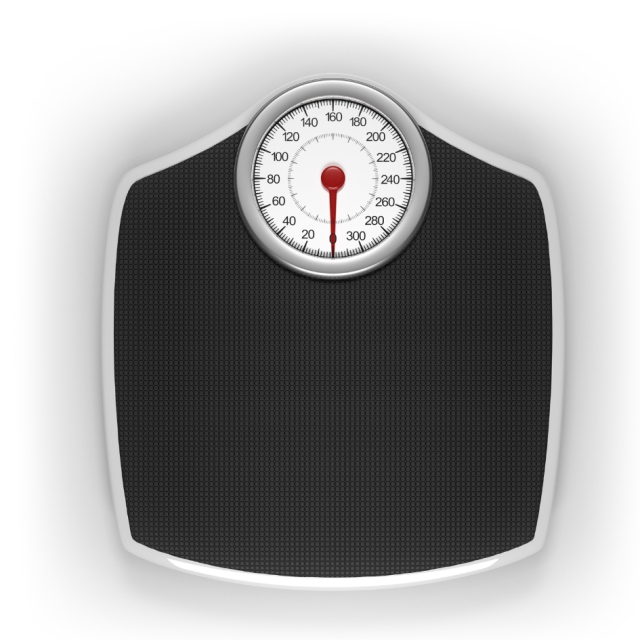Ideal weight is a concept that has generated debates, scientific and social discussions over the years. Often associated with beauty standards, it is actually deeply related to health and well-being. But how is ideal weight defined? Is it a fixed number or does it vary depending on different factors? In this article, we will explore what ideal weight really means, how it is calculated and why it is important to understand it from a healthy and not merely aesthetic perspective.
The concept of ideal weight.
Ideal weight is not an absolute number or a magic formula that is valid for everyone. According to experts, such as the World Health Organization (WHO), ideal weight depends on factors such as age, sex, height, body composition and level of physical activity of each person. In addition, it must be taken into account that each organism is unique, so the idea of a universally ideal weight is not realistic.
Generally speaking, ideal weight is the weight that allows a person to maintain good health, feel energetic, and prevent diseases related to being overweight or underweight. It is not just about reaching a specific number on the scale, but rather having a healthy ratio between muscle mass, fat, and other tissues.
How to calculate ideal weight.
There are several tools to determine a healthy weight range:
Body Mass Index (BMI).
The BMI is one of the most widely used methods to assess whether a person's weight is adequate. It is calculated by dividing the weight in kilograms by the square of the height in meters.
The BMI classification according to the WHO is as follows:
- Underweight: BMI less than 18.5.
- Normal weight: BMI between 18.5 and 24.9.
- Overweight: BMI between 25 and 29.9.
- Obesity: BMI of 30 or more.
Although BMI is a useful tool, it has limitations, as it does not distinguish between muscle mass and body fat. For example, a person with a lot of muscle mass can have a high BMI without being overweight.
Waist-to-hip ratio (WHR).
This measurement assesses the distribution of body fat, an important factor for health. It is calculated by dividing the waist circumference by the hip circumference. According to the WHO, the recommended values are:
- Women: WHR less than 0.85.
- Men: WHR less than 0.90.
A high waist-to-hip ratio may indicate an increased risk of cardiovascular and metabolic diseases, even if overall weight appears normal.
Body fat percentage.
This method measures the proportion of body fat in relation to total weight. Healthy ranges vary by sex and age:
- Women: 21-33% body fat.
- Men: 8-19% body fat.
It can be measured using tools such as skinfold calipers, bioimpedance scales, or more advanced tests such as dual-energy X-ray absorptiometry (DEXA).
Factors that influence ideal weight.
Genetics
Body weight is largely influenced by genetics. Inherited factors can determine how the body stores fat, regulates appetite, and responds to exercise.Age
As we age, our body composition changes. Muscle mass tends to decrease, while fat may increase, even if overall weight remains constant.Sex
Men and women have different proportions of muscle mass and body fat, which affects ideal weight.Physical activity level
Regular exercise not only helps maintain a healthy weight, but also improves body composition by increasing muscle mass and reducing fat.Cultural and social factors
Perceptions of ideal weight vary across cultures and social trends. It is important to distinguish between societal expectations and personal health needs.
Importance of reaching and maintaining ideal weight.
Maintaining a healthy weight is essential for physical and mental health. Some of the benefits include:
- Reduced risk of disease: Maintaining a healthy weight decreases the likelihood of developing diseases such as type 2 diabetes, high blood pressure, heart disease, and certain types of cancer.
- Improved quality of life: People with a healthy weight tend to have more energy, better mobility and fewer joint problems.
- Positive impact on mental health: Maintaining a healthy weight can improve self-esteem and reduce the risk of emotional disorders such as depression and anxiety.
Common mistakes when looking for the ideal weight.
- Extreme diets: Many people turn to drastic diets that promise quick results. However, these are often unsustainable and can lead to nutritional deficiencies.
- Obsession with the number on the scale: Overall weight does not always reflect health. It is more important to assess body composition and other indicators.
- Social Comparisons: Comparing yourself to unrealistic beauty standards can lead to unhealthy behaviors and frustration.
Tips for achieving a healthy weight.
- Eat a balanced diet: Include fruits, vegetables, lean proteins, healthy fats and complex carbohydrates in your daily meals.
- Stay active: Get at least 150 minutes of moderate exercise a week.
- Set realistic goals: Instead of focusing on a specific number, prioritize feeling healthy and energetic.
- Consult a professional: Nutritionists and doctors can provide you with personalized guidance to reach and maintain your ideal weight.
Ideal weight is a relative concept that should be approached from a holistic health perspective, beyond aesthetic standards. Factors such as genetics, age, sex and level of physical activity influence each person's healthy weight. Tools such as BMI, waist-to-hip ratio and body fat percentage can provide guidance, but they are not definitive.
It is crucial to remember that every body is unique and that well-being should be the priority. By adopting healthy habits, such as a balanced diet and regular exercise, you can not only achieve a healthy weight, but also improve your quality of life and prevent diseases.






